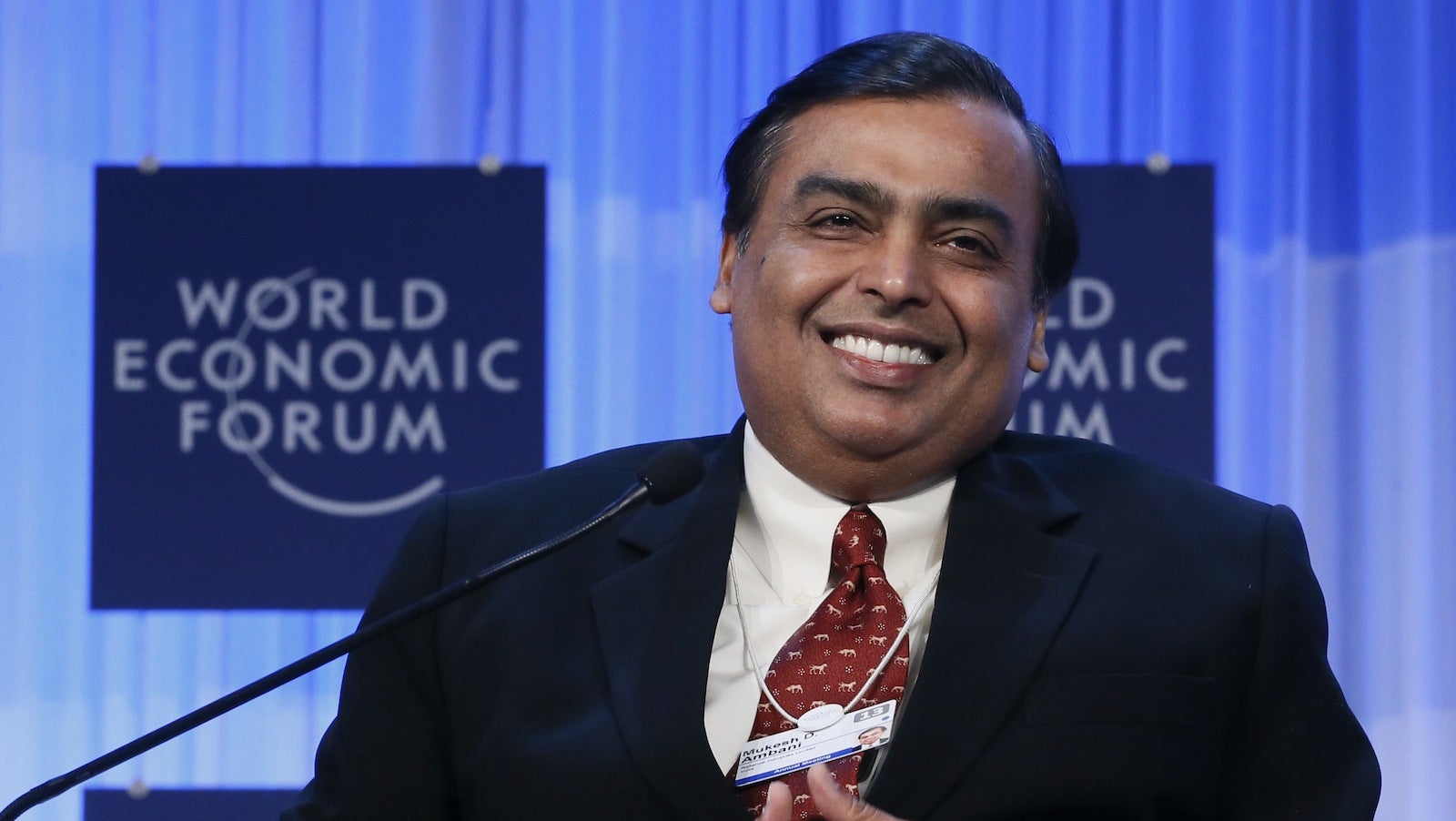50 million customers in three months: Ambani says Reliance Jio grew faster than Whatsapp, Facebook and Skype
India’s richest man is extending his generosity.


India’s richest man is extending his generosity.
Reliance Jio, the latest entrant in India’s telecom sector, is extending free services such as voice, internet data, and video to new and existing users till March 31, 2017.
Since its launch in September, Jio has added over 50 million customers, Reliance Industries (RIL) chairman Mukesh Ambani said on Dec. 01, addressing employees and shareholders.
“In the first three months, Jio has grown faster than Whatsapp, Facebook and Skype,” Ambani said adding that Jio has signed up six lakh new customers every day for the last three months.
On an average, a Jio customer is using 25 times more data than the average Indian broadband user, he said.
Reliance Jio was launched promising to provide the cheapest internet data rates at Rs50 ($0.7) per gigabyte (GB). “I believe these are the absolute lowest data rates anywhere in the world,” Ambani had said at the time of the launch.
The move rattled existing players who accused Reliance of foul play and undercutting data prices to add users.
Ambani’s latest announcement weighed heavy for competitors. The share price of telecom services provider Bharti Airtel slipped 1.66% and that of Idea dropped by 5.93% on the Bombay Stock Exchange after Jio extended the free services till March.
Reliance Jio also announced the launch of Jio Money, an e-wallet that merchants can download from Dec. 05 onwards and which Ambani likened to a digital ATM in every pocket.
“This will enable digital transactions of all types, be it in mandis, small shops, or restaurants,” Ambani said. Aadhaar-based micro-ATMs will also be launched in millions of locations across India to help facilitate Jio Money.
Fifty nine-year-old Ambani also congratulated prime minister Narendra Modi for his recent decision to ban two high-value currency notes in India, suggesting that such a move will bring much-needed transparency and credit flow into the economy.
“By doing this, our PMO has given the strongest push of digitally-enabled, optimal cash economy in India,” Ambani said, adding that the “common people will the biggest beneficiaries in this change.”